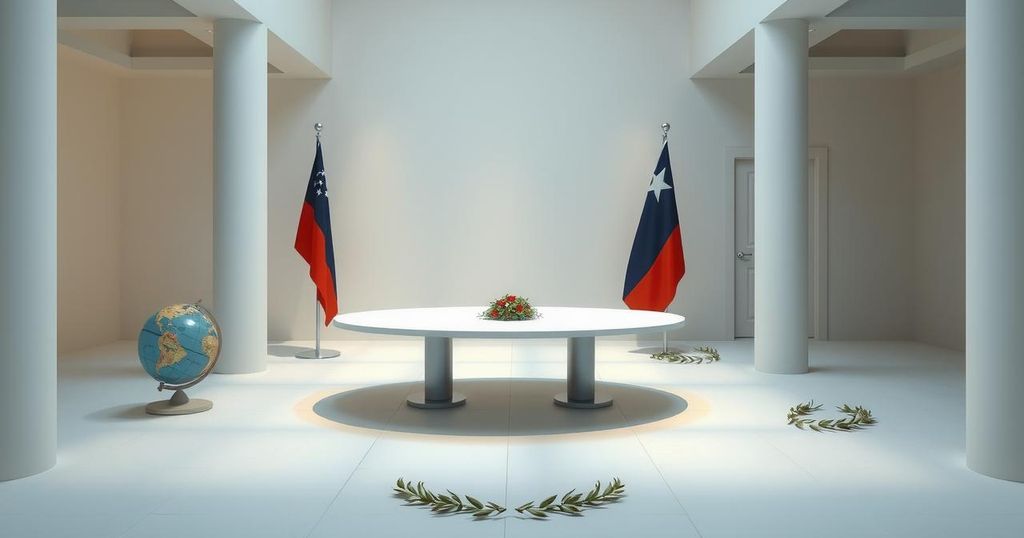Jordan’s King Abdullah II Faces Tense Talks with Trump on Gaza Plan

King Abdullah II of Jordan is set to meet with President Trump to discuss the controversial U.S. plan for Gaza. Trump has threatened to withhold aid to Jordan and Egypt if they do not accept Palestinian refugees from Gaza, which has elicited significant backlash. The meeting comes amid heightened tensions concerning a fragile Gaza ceasefire and the implications of relocating Palestinians without allowing their return.
Jordan’s King Abdullah II is preparing for a challenging meeting with U.S. President Donald Trump at the White House, scheduled for Tuesday. Abdullah leads opposition from Arab states regarding Trump’s contentious plan for the Gaza region. The meeting follows Trump’s warning that he might suspend billions of dollars in U.S. aid to Jordan and Egypt if they decline to accept Palestinian evacuees targeted for relocation under the proposed plan.
The backdrop of these discussions is an escalating situation in Gaza, where the ceasefire hangs by a thread. Trump has cautioned that significant unrest could erupt if Hamas does not release all hostages by the impending Saturday deadline. Abdullah, alongside Crown Prince Hussein, is set for closed-door discussions with Trump, following an earlier meeting with National Security Advisor Mike Waltz.
King Abdullah, a crucial ally for the U.S., has firmly opposed any attempts to acquire control of Palestinian territories. His stance became clear after Trump introduced his proposal, which envisions the U.S. overseeing Gaza and relocating Palestinians without allowing them to return. President Trump emphasized this plan, dubbing potential future developments in Gaza as akin to creating the “Riviera of the Middle East.”
As pressure mounts, Trump has reiterated his demand that Jordan and Egypt absorb over two million Palestinians from Gaza as part of his strategic vision. In an interview broadcasted Monday, Trump articulated that evicted Palestinians would have no right to return to Gaza, provoking global backlash and condemnation from Arab nations, which advocate for a two-state solution that recognizes Palestinian statehood alongside Israel.
Egyptian President Abdel Fattah al-Sisi, anticipating discussions with Trump this week, has publicly rejected proposals that would displace Palestinians during Gaza’s reconstruction. The Egyptian Foreign Ministry reinforced this position by categorically opposing any compromises on Palestinians’ rights. Given the significance of the issue, analysts underline the existential stakes for Jordan, where nearly half the population is of Palestinian descent.
Jordan has a complex history with Palestinian groups, highlighted by the violent incidents of “Black September” in 1970. However, the country remains acutely aware of the advantage the U.S. holds regarding economic assistance, receiving approximately $750 million annually, with an additional $350 million in military aid. In the current climate, Jordan’s leadership faces a delicate balancing act between regional representation and the implications of U.S. aid dependence.
In summary, King Abdullah II’s upcoming discussions with President Trump illustrate the critical intersection of U.S. foreign policy and Middle Eastern geopolitics. The tension surrounding the Gaza situation and Trump’s proposals highlight Jordan’s precarious position, particularly regarding Palestinian refugee rights and U.S. aid. Both nations must navigate complex regional realities as they engage in these pivotal talks.
Original Source: www.france24.com








